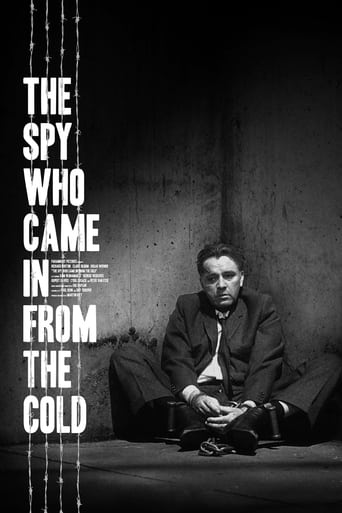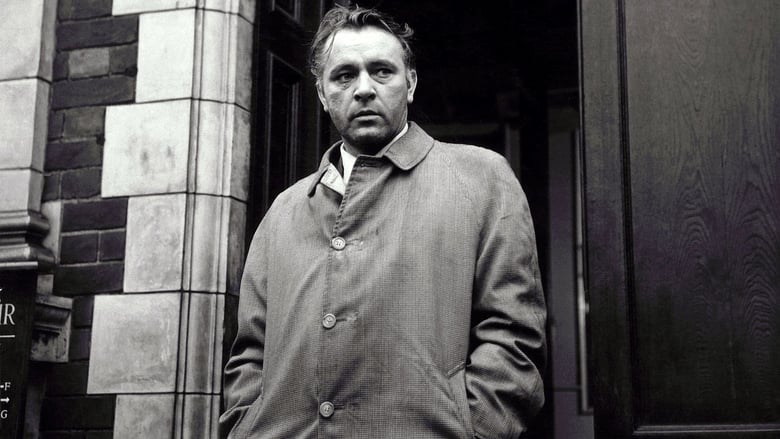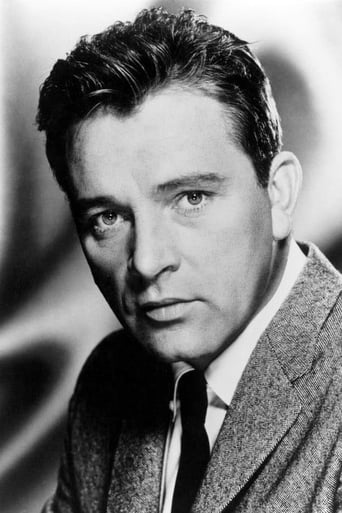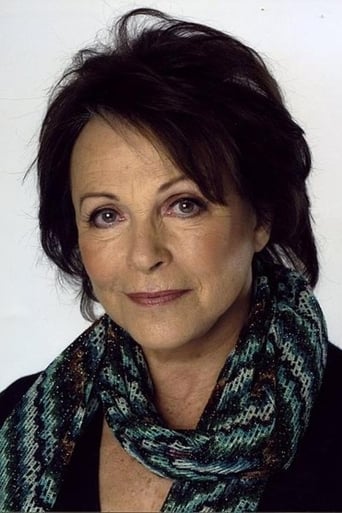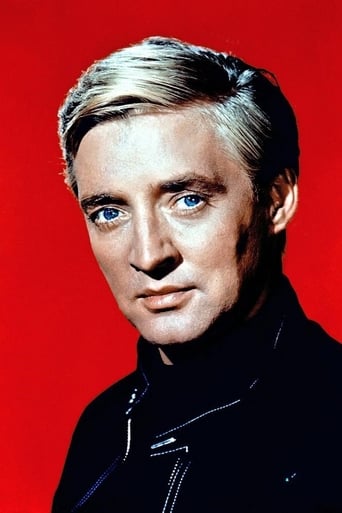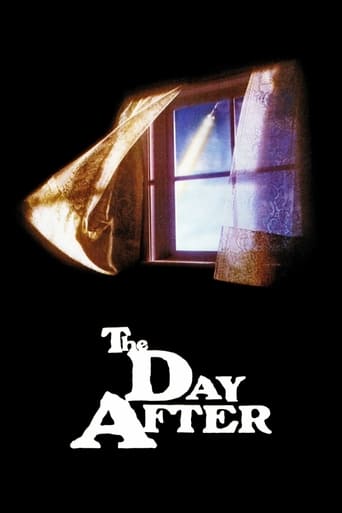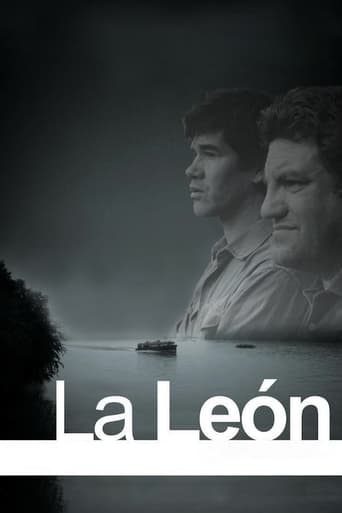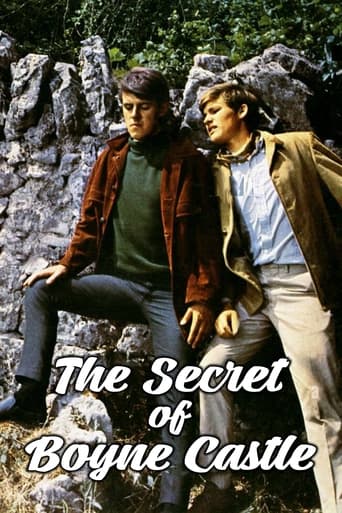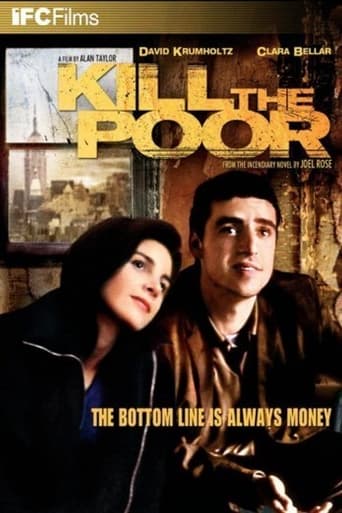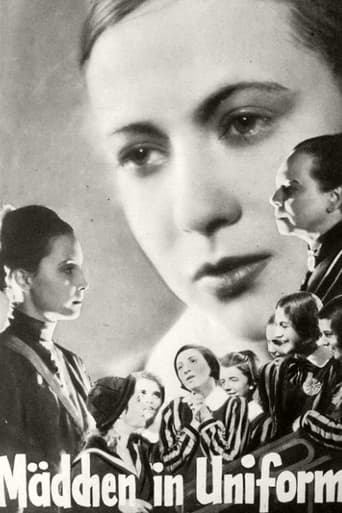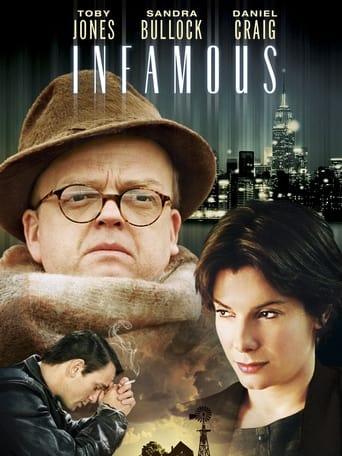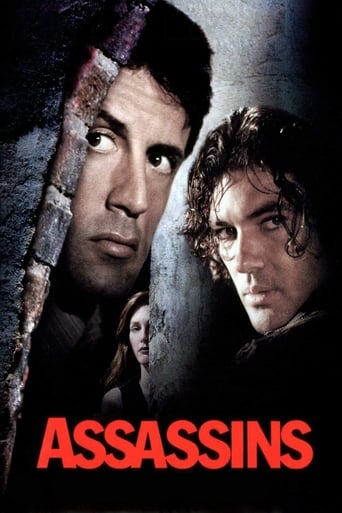The Spy Who Came in from the Cold (1965)
British agent Alec Leamas refuses to come in from the Cold War during the 1960s, choosing to face another mission, which may prove to be his final one.
Watch Trailer
Cast
Similar titles
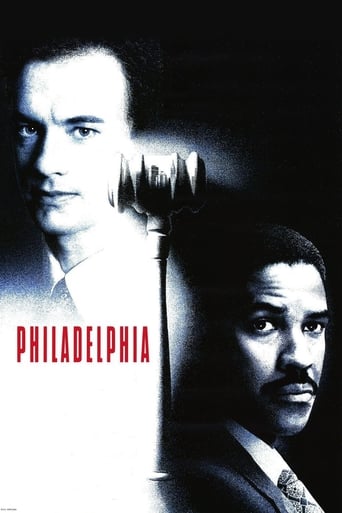
Reviews
Good concept, poorly executed.
Don't Believe the Hype
Great example of an old-fashioned, pure-at-heart escapist event movie that doesn't pretend to be anything that it's not and has boat loads of fun being its own ludicrous self.
This is a coming of age storyline that you've seen in one form or another for decades. It takes a truly unique voice to make yet another one worth watching.
Martin Ritt's cinematic re-enactment of John le Carré's sensational spy novel, is a somber pièce- de-résistance countervails the much sought-after James Bond franchise (which, over 60 years later, is still a juggernaut groovy train), de-glamorizes its Martini, shaken not stirred screen preconception, and adjusts an intractably realistic spin on the treachery and disillusion of the Janus-faced veiled by the Cold War paranoia. One year after the erection of the Berlin Wall, Alec Leamas (Burton, supremely jaded and miffed) is devolved from the head of UK's West Berlin office after one of his best double-agent is shot dead in the chilling opening long shot. Back to London, a dispirited Alec is reassigned as an insignificant librarian, and strikes up a romantic liaison with his younger co-worker, the self-effacing Nancy Perry (Bloom), although they hold different political persuasions, Nancy is a communist, the idealistic type. After an impulsive physical assault on Patmore (Lee, the first"M" in the Bond series), a grocery shop owner who possibly holds a racist animosity towards Alec's Irish lineage, he is put in prison, and after his release, he is contacted by the member of the East German Intelligence Service, deemed as a potential defector on the face of his demeaning situations. Soon the story reveals that everything aforementioned is a front, in fact, Alec is undertaking a clandestine mission designated by Control, the chief of UK's Secret Intelligence Service (an inscrutably poised Cyril Cusack, not minces word about the vocation's seedy modus operandi), to act as a faux-defector to East Germany and deliver incriminating information to frame a high rank East German officer Mundt (van Eyck) as a paid informant, so that Mundi will be executed by his enterprising deputy Fiedler (Werner). So Alec assiduously climbs the pecking order to gain the trust of his enemies (where Ritt knowingly jeers at the callous rank superiority in the communist party) and finally reaches East Germany where he is under personal interrogation by Fiedler, he tactfully doles out spotty disinformation and gradually earns Fiedler's trust. Everything goes well according to the plan, during a secret tribunal where Mundt is tried, Fiedler's impassioned accusation seems spotless, but one person's appearance tips the scale, but that is not all, the film still pulls the wool over our eyes, until a final twist, in the fashion of Billy Wilder's WITNESS FOR THE PROSECUTION (1957), clears the ulterior motive, and casts an unnerving pathos when Alec delivers the revealing condemnation about the true nature of spy, he and Nancy are given the chance to scramble that damned wall for safety, but at that point, all bets are off. Unflinching in foregrounding its source novel's ingrained skepticism and fatalism, THE SPY WHO CAME IN FROM THE COLD sustains a compelling narrative arc without resorting to action spectacles (gunshots only being fired in two occasions), meanwhile DP. Oswald Morris' expressively noir-ish cinematography and Sol Kaplan's indelibly enthralling score speak volumes of the bleak context where the world is governed by sinister conspiracies and people like Alec and Nancy, however diligent or innocent, are expendable pawns who can never outrun their sorry fate, In retrospect, the film should have been Mr. Burton's crowning point to take that Oscar golden statue which would elude his entire life, he is nominated but loses out to Lee Marvin's Manichaean turn in CAT BALLOU (1965), which as time goes by, looks like a travesty to an increasing extent. Mr. Burton is absolutely at his most impenetrable in limning Alec's flinty carapace during his high-wire act, and most poignant in emoting his smoldering frustration and self-loath when he realizes that he has accidentally consummated his assignment, but at the expense of his conviction to humanity. The supporting cast is also exceptional, significant players like Bloom and Werner, instigate great two-handers - the former plies the story with a tinge of well-balanced warmth whereas the latter is memorably eloquent and radiant to fight for his noble cause, respectively with Mr. Burton, without being overshadowed by the latter's incandescent flair, and a solemn-looking Peter van Eyck ekes out a transfixing about-face moment, with a bloodthirsty dagger nevertheless in his hands. An outright engrossing spy thriller, pulls no punches in challenging its indulgent audience, and steadfastly establishes its growing cachet as a film par excellence in its own genre.
This film is a class unto itself. Released in 1965 , during what can be called a burning maxima of the cold war , the director takes a bold enough stand to paint an unforgiving picture of the the political regimes on either side of the iron curtain.As an espionage thriller it is truly brilliant keeping the audience on the edge of their seats till the very end. The remarkable thing about the movie is the fluid interplay of counter plots in a linear yet atypical kind of narrative. The casting is good , though I do still believe that the acting could have a lot better from some members . Despite the progressive storyline, intriguing plot the movie still carries forth shades of melodrama . There is a conspicuous presence of theatricality in this movie except for a few scenes where traces of more realist cinema can be seen. The movie is not very long and does not beat around the bush when it comes to plot progression. The climax is one of the best in the genre and warrants that the movie be watched by all the enthusiasts of the genre.Watch it for great dialogue, literary criticism , Burton's stage method and a captivating plot .
An agent crossing back over to the west in Berlin is killed. Alec Leamas (Richard Burton) is called back to London for the failure. His boss would like to bring him in from the cold but he wants to stay operational. He gets demoted and becomes a depressed drunk. He gets an idealistic communist girlfriend Nan Perry (Claire Bloom). He is then recruited by the East Germans except they don't know that he is in fact disseminating false information to implicate East German intelligence leader Mundt.I like one of two things or both in espionage movies. I want either action or paranoid drama. This being a John le Carré novel means that there is almost no action. There is a bit of paranoid drama although I like it portrayed more intensely. This is a good thinking person's spy thriller and a great antidote to Bond. I can do without the idiotic naivety of Perry. She could be smarter than her cardboard cutout character. Richard Burton is solid. The last scene is amazing and well worth waiting for.
I am a massive fan of John le Carre's books. I always worry when they are adapted into movies that they will not be able to capture the complexity of his story lines. It wasn't until recently that I stumbled across this movie and decided to watch it. I was very happy overall with the adaptation. I still feel that there hasn't been a le Carre adaptation yet made that matches the complexity of his books - but from the book itself this movie did itself justice in the period it was filmed. Richard Burton was excellent as Alec Leamus - he exacted the role of the dark and brooding spy with maximum effect. His acting gave it the weight that I would have expected from the novel. The supporting characters - particularly Oskar Werner also did a great job in the adaptation. It is dated compared to modern thrillers and espionage movies - but many of the scenes totally encapsulate the original story line. I still think that a modern re make done the right way could do further justice to this incredibly twisted story line - but this adaptation exceeded my expectancy level with it's superb acting. You definitely need to pick the right time to watch it - it does require keen attention. But when you do it's worthy viewing and strong acting performances render it an underrated success.
